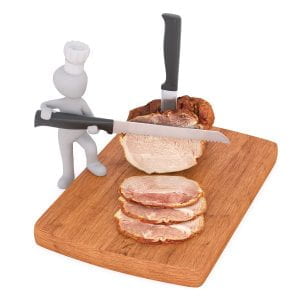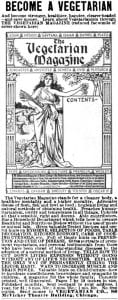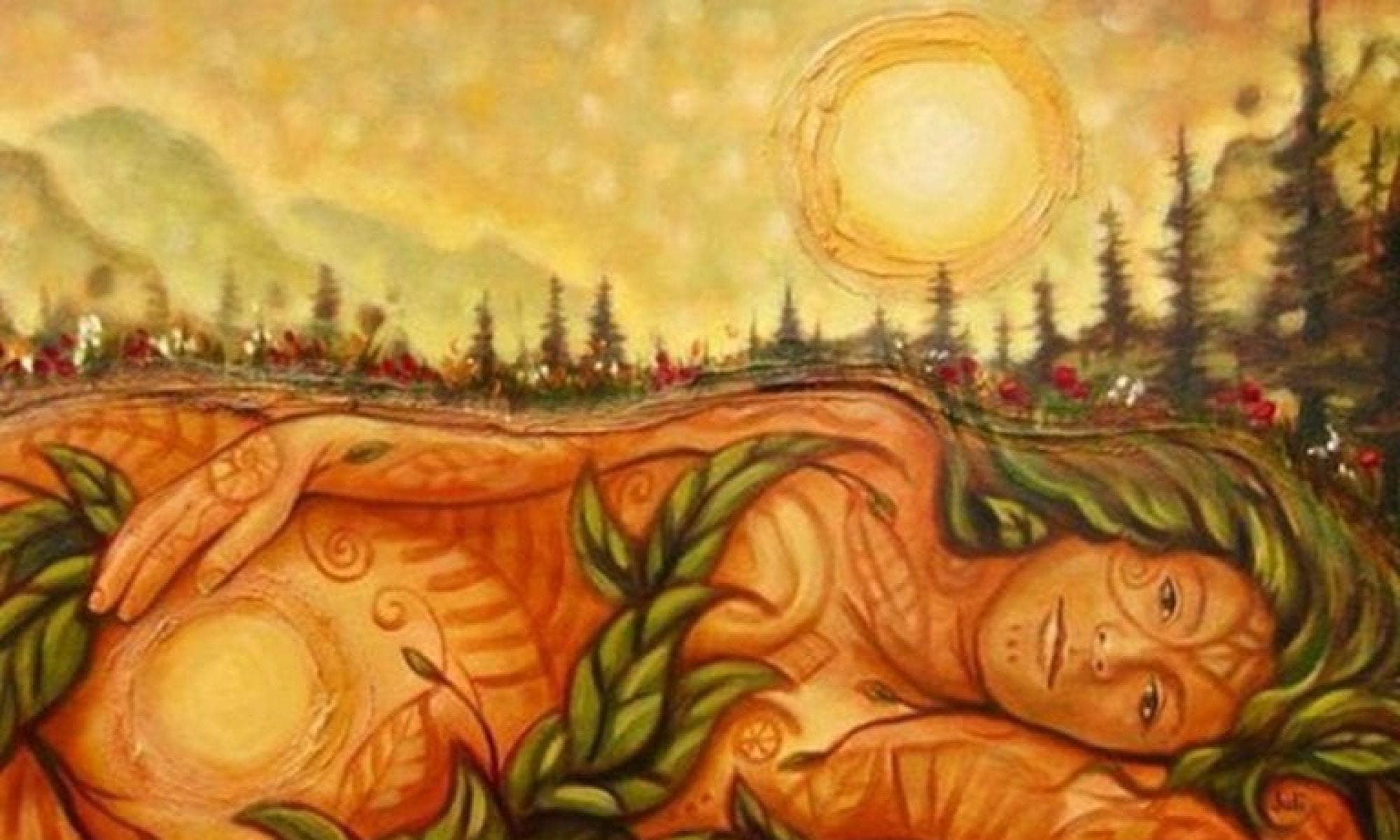

In my opinion, the image above represents a negative commentary on the practice of eating meat. There is a steak knife inserted into the meat itself. It looks like a scene from a “murder” movie. I interpret this to be symbolic of the animal being killed by either a food company or private individuals without regard for the animal’s life. The pseudo “Pillsbury Doughboy Chef”, does not have any facial features. To me, this means that they are not acknowledging the source of the food and/or taking any responsibility for preparing it and perpetuating the practice of slaughtering animals. The “food” is served on an attractive, clean wooden cutting board. The meat itself is representative of male Machismo” “But with meat still being the “manly” choice, it may become even harder for male consumers to opt for a meat-free lifestyle, even if they support it in theory. It’s hard to shift an individual’s perception without first tackling their society’s view.” (Meat Heads, Huffington Post). The pieces of meat are uniformly cut with no blood. There is no indication that what is being served was once a living being. It is common practice to try and distance the customer from the actual source when eating an animal. I imagine if this scene was in a restaurant and there were photographs of pigs and cows adorning the walls in lovely settings on rolling hills with clover under hoof there would still be a weak if nonexistent connection from the customer back to the source and process of preparing the meat for consumption. Imagine the restaurant walls filled with photographs of dead carcasses, mutilated animals and crying offspring….would they still want to “enjoy” their meal? Unfortunately, I believe many people still would. Animal Slaughter – The Madness Behind Killing Animals For Food (Video) (kinderworld.org)
Using the US as an example According to a 2018 Gallup poll, 5% of U.S. adults consider themselves to be vegetarian.
| Vegetarian | ||||||||||||||||||||||||||||||||||||||||||||||||||||||||||||||||||||||||||||||||||||||||||||||||||||
|---|---|---|---|---|---|---|---|---|---|---|---|---|---|---|---|---|---|---|---|---|---|---|---|---|---|---|---|---|---|---|---|---|---|---|---|---|---|---|---|---|---|---|---|---|---|---|---|---|---|---|---|---|---|---|---|---|---|---|---|---|---|---|---|---|---|---|---|---|---|---|---|---|---|---|---|---|---|---|---|---|---|---|---|---|---|---|---|---|---|---|---|---|---|---|---|---|---|---|---|---|
| % | ||||||||||||||||||||||||||||||||||||||||||||||||||||||||||||||||||||||||||||||||||||||||||||||||||||
| U.S. Adults | 5 | |||||||||||||||||||||||||||||||||||||||||||||||||||||||||||||||||||||||||||||||||||||||||||||||||||
| Gender | ||||||||||||||||||||||||||||||||||||||||||||||||||||||||||||||||||||||||||||||||||||||||||||||||||||
| Men | 4 | |||||||||||||||||||||||||||||||||||||||||||||||||||||||||||||||||||||||||||||||||||||||||||||||||||
| Women | 6 | |||||||||||||||||||||||||||||||||||||||||||||||||||||||||||||||||||||||||||||||||||||||||||||||||||
Some interesting vegetarian statistics are:
- Nonwhite Americans (9%) are three times as likely as white Americans (3%) to describe themselves as vegetarian.
- 11% of self-identified liberals identify as vegetarian, compared with 2% of conservatives and 3% of moderates.
- Vegetarianism is less prevalent among older Americans: 2% of adults aged 55 and older say they adhere to a vegetarian diet, compared with 8% of 18- to 34-year-olds and 7% of 35- to 54-year-olds.

This term relates to both the conscious and subconscious messages about food and diet that are continually being received. Our food choices are impacted by the information and extent to which we are exposed to this sort of conditioning. For instance, in our Western culture, diet and thinness in women symbolizes that they may be more affluent, sexy, intelligent and engaging. An “overweight woman” may be seen as socially less desirable and even less intelligent. The same stereotype does not generally get attributed to men. “Backed up by the entertainment industry is the idea that the bloodier the steak, the more manly the man, the same way it once was with the man smoking cigarettes.” (Meat Heads, Huffington Post). The word “diet” simply relates to what a person actually eats. It does not necessarily mean that a person is “watching their diet” or concerned about its content. Much of the opinions about diet, weight and gender differences has nothing to do with any real scientific evidence. It is socially based. Different types of food bias can be a factor in creating unhealthy, even dangerous food practices especially for women like anorexia. A women’s self-worth is tied to their weight more than a male’s weight is. The visual appearance of how food might “look” in advertisements can also be problematic. Some examples of stereotypic food bias especially in America would be the male portrayed and barbequing “meat”. This seems reminiscent of Neanderthal ideology. Women may feel compelled to eat “light” especially during a date or in public. The ever popular “salad” is often depicted. Of course, many salads are much unhealthier than many other food choices. It is not unusual for a woman to say “I have been so bad today, I ate ……….”. ”
Feminists and ecofeminists alike have noted ways that animal pejoratives are used to dehumanize women….sow, bitch, beaver etc. (Ecofeminism on the Wing: Perspectives on Human-Animal Relations by Greta Gaard). Speciesism is a form of oppression that reinforces other oppression. Sympathy and empathy do provide the foundation for vegetarian ecofeminism. “I envision a time when all humans recognize ourselves as merely one species of animals, and restore right relations with the rest of our extended family. (Ecofeminism on the Wing: Perspectives on Human-Animal Relations by Greta Gaard). Contextual moral vegetarianism represents a response to a politicized ecological ethic of care. Toward an Ecological Ethic of Care | Hypatia | Cambridge Core.
Deane Curtain has written scholarly articles on the topic of “Moral Vegetarianism” which is the process of exploring ecological ethics and in doing so enables a person to more closely evaluate their ethic as it relates to an understanding of food. Some examples of this are ritualized violence against non-humans. For example, the Japanese have a Shinto ceremony that pays respect to the insects that are killed during rice planting. Tibetans, who as Buddhists have not generally been drawn to vegetarianism, nevertheless give their own bodies back to the animals in an ultimate act of thanks by having their corpses hacked into pieces as food for the birds.
Just as there are gender-specific reasons for women’s commitment to vegetarianism, for men in a patriarchal society moral vegetarianism can mark the decision to stand in solidarity with women. “Real people do not need to eat “real food,” as the American Beef Council would have us believe.”
Contextual Moral Vegetarianism, by Deane Curtin (animal-rights-library.com)
